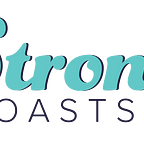Strong Coasts Florida Keys Project Fieldwork — Fall 2020 Update
By Michelle Platz
Data collection has officially concluded for the season at our two reef restoration sites in the Florida Keys! Since installing BEAMS monitoring systems on each reef in early July, we have outplanted over 150 coral fragments, have collected over 500,000 datapoints, and survived two tropical storms. We can’t wait to start analyzing the data and learning how the reefs’ community metabolisms changed throughout the restoration process!
Special thanks to all our collaborators who made this study possible, especially the Takeshita Lab (MBARI) for providing the technology and support to complete this study, and to the Mote Marine Laboratory’s Coral Reef Monitoring & Assessment Program for their field support and for rearing and outplanting the corals used.
Check out the video below to see one of our September fieldwork days, monitoring fragments one-month after transplantation, servicing sensors, downloading data, and replacing corals which had been lost to TS Laura.
For more information on this collaborative study, see our July 2020 blog post here: http://www.strongcoasts.org/2020/07/14/strong-coasts-florida-keys-project-summer-fieldwork-update/).
About the author Michelle is pursuing a PhD in Environmental Engineering at the University of South Florida. She has a BS in Environmental Engineering from the University of Cincinnati and a Masters in Environmental Engineering from the University of South Florida. Her dissertation research investigates monitoring in-situ community metabolism, the processes involved in cycling carbon for coral calcification and biomass production, in coral nurseries and on restored reefs as a means to monitor coral restoration. She is working with a suite of monitoring technologies known as the Benthic Ecosystem and Acidification Measurement System (BEAMS) which was previously developed by Dr. Yui Takeshita of the Monterey Bay Aquarium Research Institute. Her research goal is to use these data to improve restoration practitioners’ understanding of the metabolic, environmental, and hydrodynamic processes driving coral growth. She hopes to contribute data which can be used to inform upstream environmental and ecological engineering interventions to help protect the ecosystem services reefs provide.
STRONG COASTS is supported by a National Science Foundation Collaborative Research Traineeship (NRT) award (#1735320) led by the University of South Florida (USF) and the University of the Virgin Islands (UVI) to develop a community-engaged training and research program in systems thinking to better manage complex and interconnected food, energy, and water systems in coastal locations. The views expressed here do not reflect the views of the National Science Foundation.
